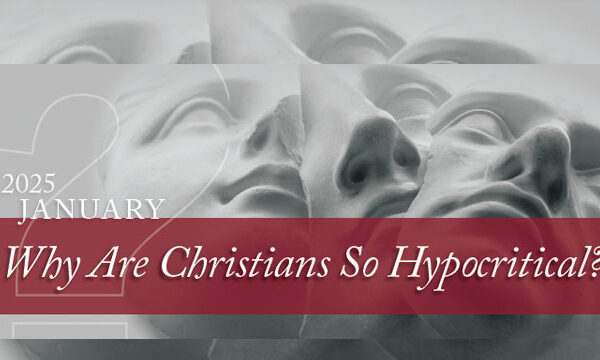Back to series


Argument from Desire
Click here to open a Print - Friendly PDF
Do our deep human desires and aspirations point toward a real fulfillment or are they inevitably doomed to frustration? Are our longings for meaning, dignity, immortality, and deep spiritual experience a dead-end street, or are these and other such aspirations destined for fulfillment? These are questions with which C. S. Lewis wrestled, as have many throughout the ages.
Many Goals, But No Way
Franz Kafka (1883-1924), the Jewish writer/novelist born in Prague (then in Austria-Hungary), is regarded by some as the representative writer of the twentieth century. This atheist wrestled deeply with the human experience. He summed up all of his writings in a single phrase: “There is a goal, but there is no way.” Kafka’s writings are typically parables that are dark and bizarre in their subject matter and development. For instance, in his novel The Trial, Joseph K. is arrested on his thirtieth birthday. He is not told his crime or how he can be acquitted. He spends the rest of the novel exploring the answers to both questions. No one can tell him why he is guilty, so he searches his own conscience and discovers many things for which he might have been arrested, but never can find out which fault led to his indictment. He feels quite guilty but does not know why. He also tries many sources to find out if he can gain an acquittal, but neither lawyers nor judges nor the church can show him how. While Kafka wrote that he understood original sin better than anyone, he did not believe in God, sin, or God’s forgiveness. In the person of Joseph K. in The Trial, Kafka strives to know why he is guilty and how to be forgiven, but, from the beginning to the end of the story, he is frustrated; he could not find the way to forgiveness.
Many Goals, But There Is A Way
By contrast, C. S. Lewis found out that there was a goal and there was a way. Many deep human desires pointed to real fulfillment of these desires, if not in this world, then in the next. Peter Kreeft, philosophy professor at Boston College, wrote an essay showing the formal side of Lewis’s argument. Kreeft found over the years that this argument for God’s existence was more compelling to many of his students than many more philosophical arguments. Kreeft states the argument:
Major Premise: Every natural or innate desire in us points to a corresponding real object that can satisfy the desire.
Minor Premise: There exists in us a desire which nothing in time, nothing on earth, no creature can satisfy.
Conclusion: There exists something outside of time, earth, and creatures which can satisfy this desire.
 To state it in another way: There is hunger, and there just happens to be food that satisfies that hunger. There is thirst, and there happens to be drink to satisfy that thirst. There is sexual desire, and there happens to be sex , and so on. But, there are also other desires that seem to be universal, transcending different ages and cultures, that seem to be similarly inherent to human beings; namely, spiritual desires such as a hunger for the supernatural, a capacity for awe and worship, a desire for immortality, meaning, dignity, and so on. Do these aspirations have a corresponding fulfillment or not? If nature makes nothing in vain, if these latter spiritual desires are natural, and if these desires cannot be adequately explained by nature alone, then the conclusion must follow. Kreeft points out that this argument is more than a logical one. It is more of a meditation on our lives. Let us look at how this argument might be developed.
To state it in another way: There is hunger, and there just happens to be food that satisfies that hunger. There is thirst, and there happens to be drink to satisfy that thirst. There is sexual desire, and there happens to be sex , and so on. But, there are also other desires that seem to be universal, transcending different ages and cultures, that seem to be similarly inherent to human beings; namely, spiritual desires such as a hunger for the supernatural, a capacity for awe and worship, a desire for immortality, meaning, dignity, and so on. Do these aspirations have a corresponding fulfillment or not? If nature makes nothing in vain, if these latter spiritual desires are natural, and if these desires cannot be adequately explained by nature alone, then the conclusion must follow. Kreeft points out that this argument is more than a logical one. It is more of a meditation on our lives. Let us look at how this argument might be developed.
Certain very deep human aspirations are either pointers to something real, or else they are full of sound and fury but signifying nothing. What about the desire to worship and the capacity for awe that seems to transcend cultures and time periods? Many have claimed to have a sense of awe when worshipping. We are faced with an either/or. Lewis says in The Problem of Pain,
There seems to be only two views we can hold about awe. Either it is a mere twist in the human mind, corresponding to nothing objective and serving no biological function, yet showing no tendency to disappear from that mind at its fullest development in poet, philosopher, and saint; or else it is a direct experience of the really supernatural, to which the name revelation might properly be given.
Not only could we examine something like awe but also desires, such as the desire for morality, immortality, a meaningful life, deep relationships in community, satisfying work, freedom from guilt, hunger for the supernatural, longing for beauty, conviction that there must be justice for monstrous evil, and so on. All these things and others provide the subject matter for poets, philosophers, saints, and novelists. People like these who might be said to explore the deepest desires of humans would actually be involved in a futile enterprise if there were no fulfillment for these yearnings.
Sehnsucht
C. S. Lewis had a number of experiences that provide a central theme of Surprised by Joy (his autobiography). He uses the German word Sehnsucht to describe these experiences of yearning or desire. The German word contains in it something that the English word “yearning” does not. Sehnsucht points to tension—a separation from what has been once experienced but now is just a memory. Yet it leaves us with a longing for more. The experience points beyond itself to a real but not yet satisfied fulfillment. These desires act like cosmic pointers to a real and full satisfaction of these desires by God.
Desire in C.S. Lewis’s Life
In C. S. Lewis’s early life, he had some vivid experiences which he long remembered. In one case, his older brother Warren brought him a toy garden arranged on a biscuit tin. This toy garden moved young Jack in a way that nature did not.
Once in those very early days my brother brought into the nursery the lid of a biscuit tin which he had covered with twigs and flowers so as to make it a toy garden or a toy forest. That was the first beauty I knew. What the real garden had failed to do, the toy garden did. It made me aware of nature…as something cool, dewy, fresh, exuberant…. as long as I live my imagination of Paradise will retain something of my brother’s toy garden.
What is the significance of these stabs of joy experienced by a child—or any of us? Are they insignificant, empty, and pointless, or do they have some real meaning and significance? Later, as Lewis stood by a currant bush, the memory of the toy garden flooded back into his mind, setting off renewed joy and, even more, a longing. Lewis says:
It is difficult to find words strong enough for the sensation which comes over me; Milton’s “enormous
bliss” comes somewhere near it. It was a sensation, of course, of desire; but desire for what?
 Did he desire the biscuit tin or just the past experience? Neither, he concluded. This vivid experience came and went quickly and left everything else unimportant. What was this bliss: just a childish reverie, or something more?
Did he desire the biscuit tin or just the past experience? Neither, he concluded. This vivid experience came and went quickly and left everything else unimportant. What was this bliss: just a childish reverie, or something more?
Growing up in Belfast, Ireland, he often saw green hills off in the distance. Being just a child, he could not get to them, but they sparked his imagination. Lewis says about the green hills: “They taught me Sehnsucht….They were not far off but they were, to children, quite unattainable.”
Recently, I have been on a sabbatical at Westmont College in Santa Barbara, California. The college is nestled at the bottom of some green mountains that are often clear against the blue sky. I could not look at them each day without being moved by their beauty and without having a sense of adventure that might be had in hiking them. I am reminded of the mountains in Lord of the Rings and of that great quest. I do not always explicitly think these thoughts, but they are there just beneath the surface. What is this longing? Is it just a day-dream? Does it point to something we were made for?
In Jack’s early life, he developed a fascination for ancient mythology, particularly about Norse and Icelandic heroes. Once, while reading Longfellow’s Saga of King Olaf, he came across a passage: “I heard a voice that cried, ‘Balder the beautiful is dead, is dead….’” He went on to describe his dramatic response:
Instantly I was uplifted into the huge regions of the
northern sky. I desired with almost sickening intensity
something never to be described (except it is cold,
spacious, severe, pale, and remote)….
Some years later in a boarding school he came across an illustration and the words Siegfried and the Twilight of the Gods. In that instant, Lewis says,
The sky had turned round ....Pure ‘Northernness’ engulfed me: a vision of huge, clear spaces hanging above the
Atlantic…and with that plunge back into my own past there arose at once, almost like heartbreak, the memory of
Joy itself….at once I knew (with fatal knowledge) that to ‘have it again‘ was the supreme and only important object of desire.
Again, what was this experience? A romantic heroic dream of interest to Jack but of little or no interest to us? Was this experience caused by his hormones, something he ate, his genes, or was this a cosmic pointer to something which though not yet clearly seen had ultimate significance? These experiences haunted Lewis until he came to faith in Christ, and then they took a back seat to the new reality he experienced. These desires were like signs on the roadside, certainly of great interest in navigating his way to the destination, but of little significance once he arrived.
The Three Ways
When Lewis did come to Christ, he was able to put these longings into perspective. He says in Mere Christianity:
The longings which arise in us when we first fall in love, or first think of some foreign country,
or first take up some subject that really excites us, are longings which no marriage, no travel,
no learning, can really satisfy. I am not now speaking of that which would be ordinarily
called unsuccessful marriages, or holidays, or learned careers. I am
speaking of the best possible ones. There was something we grasped, at
that first moment oflonging, which just fades away in the reality.
Lewis argues that there are three ways of dealing with these facts—two wrong ways and one right way. First, “The Fool’s Way” involves putting the blame on the things that fail to provide permanent satisfaction and thinking that this lasting joy can be gotten by finding something better than you have had. You could try a different wife, another vacation destination, another house or car, looking for that which will fully satisfy. People like this tend to “spend their whole lives trotting from woman to woman (through the divorce courts), from continent to continent, from hobby to hobby, always thinking that the latest is ‘the real thing’ at last, and always disappointed.”
Second, is the “Way of the Disillusioned ‘Sensible Man,’” the cynic. Such people do not expect too much and thus are not disappointed when they do not get it. They repress that part of themselves that would “cry the moon.” Lewis suggests that this might be the best approach for those who do not believe in eternal life and future satisfaction of our deepest desires.
Third, “The Christian Way” maintains “creatures are not born with desires unless satisfaction for these desires exists.” Just as hunger points to food and sexual desire points to sex, “if I find in myself a desire which no experience in this world can satisfy, the most probable explanation is that I was made for another world.” Just because the things I desire on earth do not fully satisfy, this “does not prove the universe is a fraud.” It seems that pleasures here on earth awake the desire for more and act like cosmic pointers to the real things which can ultimately satisfy us. The problem is that we mistake the things here for the real thing when they are “only a kind of copy, or echo, or mirage.” Lewis says:
I must keep alive in myself the desire for my true country
which I shall not find till after death…. …I must make it
the main object of life to press on to that other country
and to help others do the same.
The Third Way
This is not to say that believers cannot experience much real pleasure in this life. In fact, God is the real hedonist. He can show us how to get maximum pleasure out of earthly things as well as satisfying our eternal longings. In Screwtape Letters, Lewis has the demon proclaim about God that all real pleasures come from the “Enemy” (God):
He’s a hedonist at heart…. He makes no secret of it; at His right hand are pleasures forever more…. He’s
vulgar, Wormwood. He has a bourgeois mind. There are things for humans to do all day long…sleeping, walking,
eating, drinking, making love, playing, praying, and working. Everything has to be twisted before it is of any use to us.
The problem in our lives is not desire, per se, but the fact that we do not passionately desire enough our own satisfaction. Our desires are not too strong, but actually too weak. Lewis says (in my favorite quote):
Our Lord finds our desires not too strong, but too weak. We are half-hearted creatures, fooling about with drink
and sex and ambition when infinite joy is offered us, like an ignorant child who wants to go on making mud pies
in a slum because he cannot imagine what is meant by the offer of a holiday at the sea. We are far too easily pleased.
When we make drink, sex, and ambition our chief desires, we neglect a higher satisfaction, “the infinite joy,” offered us. Only by making things like “drink and sex and ambition” second things can they be rightly enjoyed. Only by placing God first in the proportion that He deserves to be first, can we gain the joy, that deep and eternally abiding joy of knowing Him. The commitment to first things puts in proportion the second things so that we can derive appropriate satisfaction from them. We can enjoy life to the fullest without expecting from this life more satisfaction than it can provide. Rather than mistaking the mud pies for the holiday, we choose the best way to the maximum pleasure. We are “too easily pleased” to be satisfied with less.
Alternatives
 The alternative to following the cosmic road sign of desire is to trivialize human aspirations and desires, reducing them to a quirk in our physiology. For instance, Sir Harold Nicholson, in his book Journey to Java, studies great literary figures who were plagued by depression. He says that some “have been cursed with some deformity which hampers biological fulfillment, or with some functional weakness which prevents the easy elimination of waste products.” Lucretius was impotent, and Nietzsche had an underdeveloped pituitary gland. While there can be physical sources of depression, this attempt to reduce all literary genius to bio-chemistry makes human beings of all beings the most miserable.
The alternative to following the cosmic road sign of desire is to trivialize human aspirations and desires, reducing them to a quirk in our physiology. For instance, Sir Harold Nicholson, in his book Journey to Java, studies great literary figures who were plagued by depression. He says that some “have been cursed with some deformity which hampers biological fulfillment, or with some functional weakness which prevents the easy elimination of waste products.” Lucretius was impotent, and Nietzsche had an underdeveloped pituitary gland. While there can be physical sources of depression, this attempt to reduce all literary genius to bio-chemistry makes human beings of all beings the most miserable.
If the universe has no meaning, purpose, morality, immortality, and so on, then rocks and trees that are not conscious, thinking beings may be, in a sense, higher beings than mankind. At least these inanimate objects cannot ponder the futility of their existence as can people. That would make those sensitive literary writers, philosophers, and saints those who would have the most opportunity to dwell on their misery. So those with the highest aspirations would be the most disappointed when they discover the impossibility of satisfying their deepest desires.
It is theoretically possible that, according to Feuerbach, Freud, and Marx, all these higher aspirations including spiritual ones are invented as a kind of wish-fulfillment (Freud), projection (Feuerbach), opiate (Marx) because people cannot face a grim, meaningless universe. Or it could be that these aspirations point towards a real fulfillment of them. As we have seen in Lewis’s critique of Freud in an earlier article, the fact that we wish for something is not proof of the non-existence of that for which we wish. Wishing that the universe was created by a good heavenly Father as Jesus maintains may be the truth. On the other hand, the denial of such a heavenly Father may be a giant Oedipus Complex—a wishing of the death of the heavenly Father perhaps because of hatred of our earthy father. Paul Vitz argues that this latter option is the case in many prominent atheists in his book on that subject.
Cosmic Clues
It is not surprising that, if God created the world, there would be many clues spread throughout the cosmos. Peter Berger argues in his book Rumor of Angels that certain human experiences point beyond: hope in the face of death, a sense that there must be a balancing of the scales of justice for monstrous evil, humor, and even play experiences. When the Nazis were entering Vienna in 1945, it seemed to many as if the world was ending. Yet, children continued to play, oblivious of what was happening around them. Time was suspended, joy and fun continued unabated. Berger sums up:
Under the aspect of inductive faith, religion is the final
vindication of childhood and joy, and of all gestures that
replicate these.
In The Voyage of the Dawn Treader, the brave little mouse Reepicheep has desired Aslan’s country all his life. He tells Lucy,
When I was in my cradle, a wood woman, a Dryad, spoke this verse over me:
Where sky and water meet,
Where the waves grow sweet,
Doubt not, Reepicheep,
To find all you seek,
There is the utter East.
I do not know what it means. But the spell of it has been
on me all my life.
This spell is such as Lewis described in Surprised by Joy: “…an unsatisfied desire which is itself more desirable than any other satisfaction.” Reepicheep is along on the Dawn Treader not only as a help on the voyage but also to pursue his personal pilgrimage. This little mouse grows in maturity and stature through the course of the tale. He is first to approach a dragon the group meets, first to respond to a scary voice from the darkness near the Dark Island. Toward the end of the story, Reepicheep shows his passionate longing to fulfill the prophecy and thus know its meaning. He will find what he seeks by sailing to the “utter East.”
My own plans are made. While I can, I sail east in the Dawn Treader. When she fails me, I paddle east in my
coracle. When she sinks, I shall swim east with my four paws. And when I can swim no longer, if I have not
reached Aslan’s country or shot over the edge of the world in some vast cataract, I shall sink with my nose to
the sunrise....
When the ship’s eastward journey ends, Reepicheep takes his little coracle, barely four feet long, and paddles to the east. As those on the Dawn Treader watch:
The coracle went more and more quickly, and beautifully it rushed up the wave’s side. For one split
second they saw its shape and Reepicheep’s on the very top. Then it vanished….
Reepicheep passionately pursued his destiny until he disappeared over the end of the world. Those watching were assured that “he came safe to Aslan’s country and is alive there to this day.” This passionate desire for spiritual satisfaction has been central to great people throughout the ages. This desire is either a dead-end street or the road to eternity. C.S. Lewis argued that it is the way to Aslan’s country.

Arthur W. Lindsley
Senior Fellow for Apologetics, CSLIArthur W. Lindsley is the Vice President of Theological Initiatives at the Institute for Faith, Works, & Economics. He has served at the C.S. Lewis Institute since 1987 both as President until 1998 and currently as Senior Fellows for Apologetics. Formerly, he was director of Educational Ministries at the Ligonier Valley Study Center, and Staff Specialist with the Coalition for Christian Outreach. He is the author of C.S. Lewis's Case for Christ, True Truth, Love: The Ultimate Apologetic, and co-author with R.C. Sproul and John Gerstner of Classical Apologetics, and has written numerous articles on theology, apologetics, C.S. Lewis, and the lives and works of many other authors and teachers. Art earned his M.Div. from Pittsburgh Theological Seminary and a Ph.D. in Religious Studies from the University of Pittsburgh.
 COPYRIGHT: This publication is published by C.S. Lewis Institute; 8001 Braddock Road, Suite 301; Springfield, VA 22151. Portions of the publication may be reproduced for noncommercial, local church or ministry use without prior permission. Electronic copies of the PDF files may be duplicated and transmitted via e-mail for personal and church use. Articles may not be modified without prior written permission of the Institute. For questions, contact the Institute: 703.914.5602 or email us.
COPYRIGHT: This publication is published by C.S. Lewis Institute; 8001 Braddock Road, Suite 301; Springfield, VA 22151. Portions of the publication may be reproduced for noncommercial, local church or ministry use without prior permission. Electronic copies of the PDF files may be duplicated and transmitted via e-mail for personal and church use. Articles may not be modified without prior written permission of the Institute. For questions, contact the Institute: 703.914.5602 or email us.
-
Recent Podcasts
From Anti-Christian to Pastor – Brian Smith’s Story
by Jana Harmon, Brian Smith on January 17, 2025Brian grew up in a small Georgia town...Read More
-
Time With God
by Aimee Riegert, J.I. Packer on January 10, 2025
-
Faith and Reason – Henare Whaanga’s Story
by Henare Whaanga, Jana Harmon on January 3, 2025
-
Recent Publications
Why Are Christians So Hypocritical?
by William L. Kynes on January 1, 2025Oh, the hypocrisy of those Christians—they talk so...Read More
-
How Artists and Their Art Can Point Us to the Creator
by Russ Ramsey on December 2, 2024
-
What about Jesus’s Childhood?
by Jim Phillips on December 1, 2024
0
All Booked
0.00
All Booked
0.00
All Booked
23931
GLOBAL EVENT: Sentenced to Death with Maryam Rostampour-Keller, 8:00PM ET
https://www.cslewisinstitute.org/?event=global-event-sentenced-to-death-with-maryam-rostampour-keller-800pm-et&event_date=2025-02-07®=1
https://www.paypal.com/cgi-bin/webscr
2025-02-07

Next coming event
Days
Hours
Minutes
Seconds
GLOBAL EVENT: Sentenced to Death with Maryam Rostampour-Keller, 8:00PM ET
On February 7, 2025 at 8:00 pmSpeakers

Arthur W. Lindsley
Senior Fellow for Apologetics, CSLI
Team Members

Arthur W. Lindsley
Senior Fellow for Apologetics, CSLIArthur W. Lindsley is the Vice President of Theological Initiatives at the Institute for Faith, Works, & Economics. He has served at the C.S. Lewis Institute since 1987 both as President until 1998 and currently as Senior Fellows for Apologetics. Formerly, he was director of Educational Ministries at the Ligonier Valley Study Center, and Staff Specialist with the Coalition for Christian Outreach. He is the author of C.S. Lewis's Case for Christ, True Truth, Love: The Ultimate Apologetic, and co-author with R.C. Sproul and John Gerstner of Classical Apologetics, and has written numerous articles on theology, apologetics, C.S. Lewis, and the lives and works of many other authors and teachers. Art earned his M.Div. from Pittsburgh Theological Seminary and a Ph.D. in Religious Studies from the University of Pittsburgh.




